Lal Chand Sohag, a 39-year-old scrap metal trader, was beaten and stoned to death in front of Sir Salimullah Medical College (Mitford) Hospital on July 9 in the presence of hundreds of onlookers.
The incident took place near the third gate of the hospital around 6pm.
Local businessmen and onlookers were standing around at the time of the incident, while some quickly left the spot, but no one came forward when over a dozen attackers took turns hitting Sohag with stones and bricks to ensure his death.
Even the Ansar members in charge of the hospital gate were nonchalant.
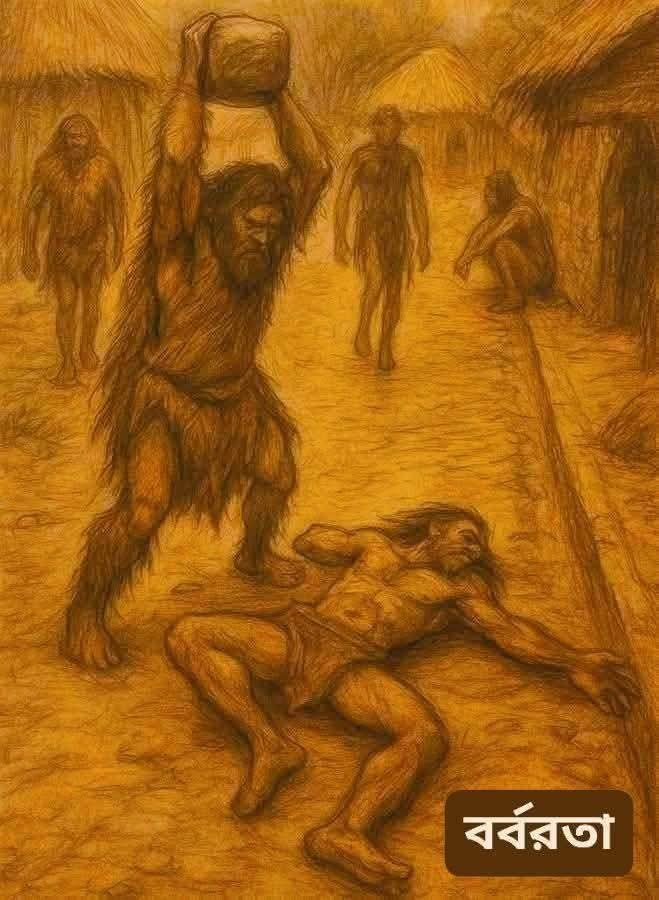
No police were seen around who could rescue Sohag before he breathed his last due to the brutal torture.
The murder has created much hype after a video of two men hitting Sohag’s head and body with a huge chunk of stone and a piece of brick went viral on social media on July 10. Before that, Sohag was beaten and chopped with sharp weapons.
A second video, which was found on July 11, shows the killers bringing the lifeless body to the centre of the road, kicking his face, hurling abuse, and jumping on his chest.
Police became active after a social media uproar and arrested two of the attackers from CCTV footage. Rapid Action Battalion also detained two suspects.
71 Dhaka University teachers demand visible steps to end mob violence
Meticulous design: Mahfuj Alam reveals July conspiracy, defends mobs
BNP’s mob attacks reach peak after Yunus-Tarique meeting
Family sources said that Sohag used to trade in old electrical wires and scrap metal in Old Dhaka. He used to lead the local scrap metal syndicate. Mahmudul Hasan Mohin and Sarwar Hossain Titu wanted to become his partners.
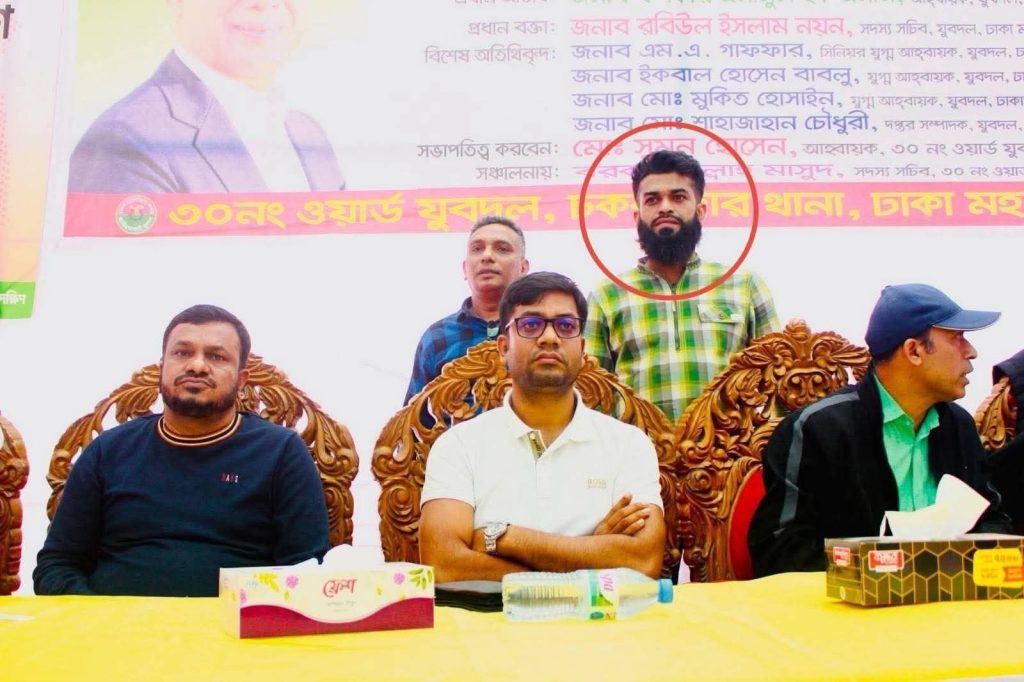
On the morning of the incident, Titu went to Sohag’s house, had food, and took him out after assuring him of a peaceful discussion on business matters.
Later, they created a mob on the street and tortured Sohag to death.
In separate announcements on Friday evening, the Jubo Dal, Chhatra Dal and Swechchhasebak Dal announced the expulsion of four people in connection with the murder in Old Dhaka.
They are Rajab Ali (Pintu), former climate affairs associate secretary of the Jubo Dal’s central executive committee, and Sabah Karim (Lucky), joint convener of Dhaka Metropolitan South Jubo Dal; Apu Das, member secretary of Chawkbazar Thana Chhatra Dal; and Kalu of the Swechchhasebak Dal.
Only a week ago, another mob killed three members of a family by stabbing and hitting their heads with bricks in the Karoi Bari area of Muradnagar Upazila of Cumilla. Many people filmed the incident on their phones.
Reports say the triple murder was preplanned, as the family had been threatened for several days with dire consequences.
Mobocracy: July Revolution appearing as Sniper Revolution
This occurred only a couple of days after a locally influential drug dealer raped a Hindu woman in the same upazila. Then a group of people entered the house and tortured both and filmed the women naked.
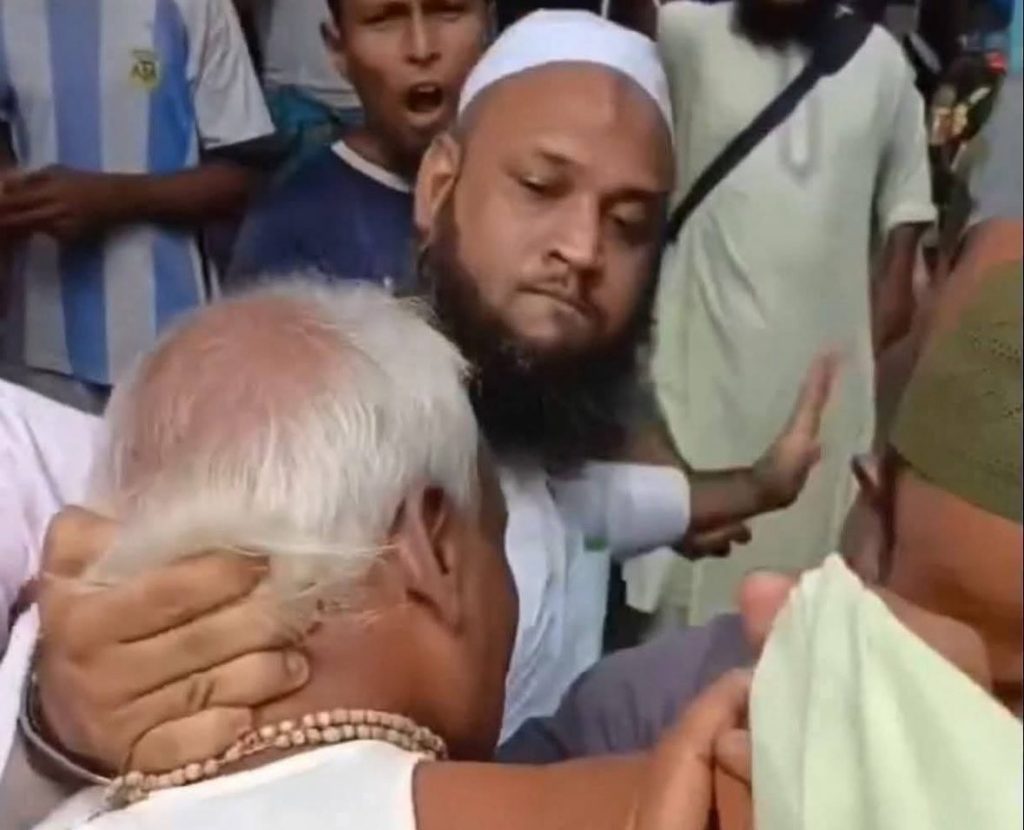
This incident occurred within days of the railway authorities dismantling a Hindu temple in Dhaka’s Khilkhet, following a deadline issued by the Touhidi Janata, during which two Hindus were beaten by members of the Touhidi Janata for alleged blasphemy and subsequently handed over to the police in Lalmonirhat.
On July 11, Khatib ANM Nur Rahman Madani of the Professor Para Mollabari Jame Mosque in Chandpur Sadar was hacked on the head with a machete after the Jumma prayers.
Locals captured the attacker, vegetable trader Md Billal Hossain of the Bakultala area.
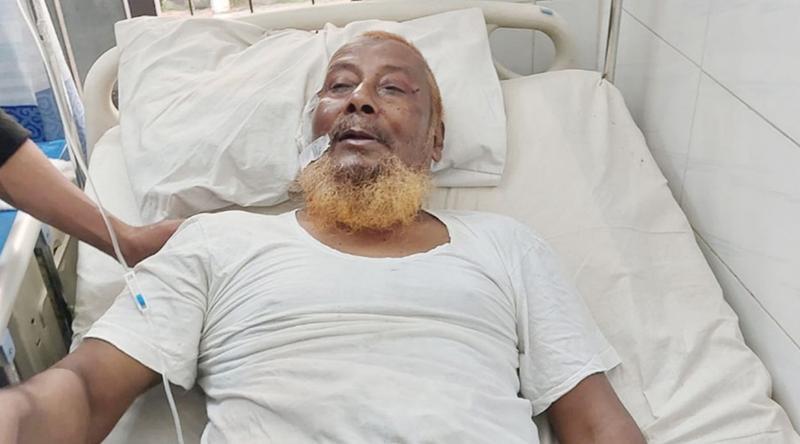
Maulana Mahbub Hasan, the Imam of the mosque, said: “After Huzoor (Nur Rahman) finished his sermon, Billal wanted to speak about some issue. But the people present there did not let him speak. Later, he sat down for prayer.
“When Huzoor was leaving after the prayer, Billal hit him on the head with a machete. I cannot say whether he attacked him over a matter of faith or a religious discussion.”
Nur Rahman is the founding imam of the Professor Para Mollabari Jame Mosque. He studied at the University of Medina.
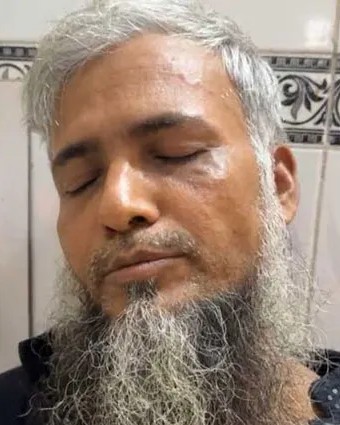
Talking to the attacker, the locals have learned that in a sermon a few days ago, Nur Rahman said that the Prophet (peace be upon him) was a messenger of Islam.
Billal considered that Khatib Nur Rahman had insulted the Prophet, so he planned to kill Huzoor with a machete. He had written on the knife that the Huzoor was killed because he insulted the Prophet.
These incidents expose the government’s patronisation of terrorists and jihadists linked to the King’s party, the National Citizen Party (NCP), the BNP, Jamaat-Shibir, Islami Andolan Bangladesh (IAB), and Hefazat, who enjoy impunity.
Since July last year, these groups have been involved in thousands of violent mob attacks, including murder, rape, looting, arson, and extortion, alongside a spike in mugging and robberies.
Reports from various newspapers reveal that from September last year to June 2025, in just ten months, 174 citizens were killed and 309 seriously injured due to organised violence.
Only from January to June 2025, 62 individuals lost their lives and 206 sustained injuries. In June, 10 were killed and 47 injured in 41 separate incidents.
Global Peace Index: Bangladesh slides as Nobel Peace laureate promotes mob violence
Mahila Parishad condemns fatwa, mob violence against Kushtia woman
The Bangladesh Awami League says over 1,000 of its leaders and activists have been killed in targeted attacks since July last year. Moreover, around 30 have been killed extrajudicially under police custody and inside prisons.
On the other hand, about 1,555 women and girls were victims of violence in the last six months.
Rights groups say 363 cases of violence against women and children occurred in June. There were 63 rape cases, 17 gang rapes, and four rapes and murders. Of the 63, seven were disabled, 19 were children, and 23 were teenagers.
Activists have condemned the persistent mob culture, which is causing damage to the lives and property of the people of the country, as well as tarnishing the country’s dignity and image in the international arena.
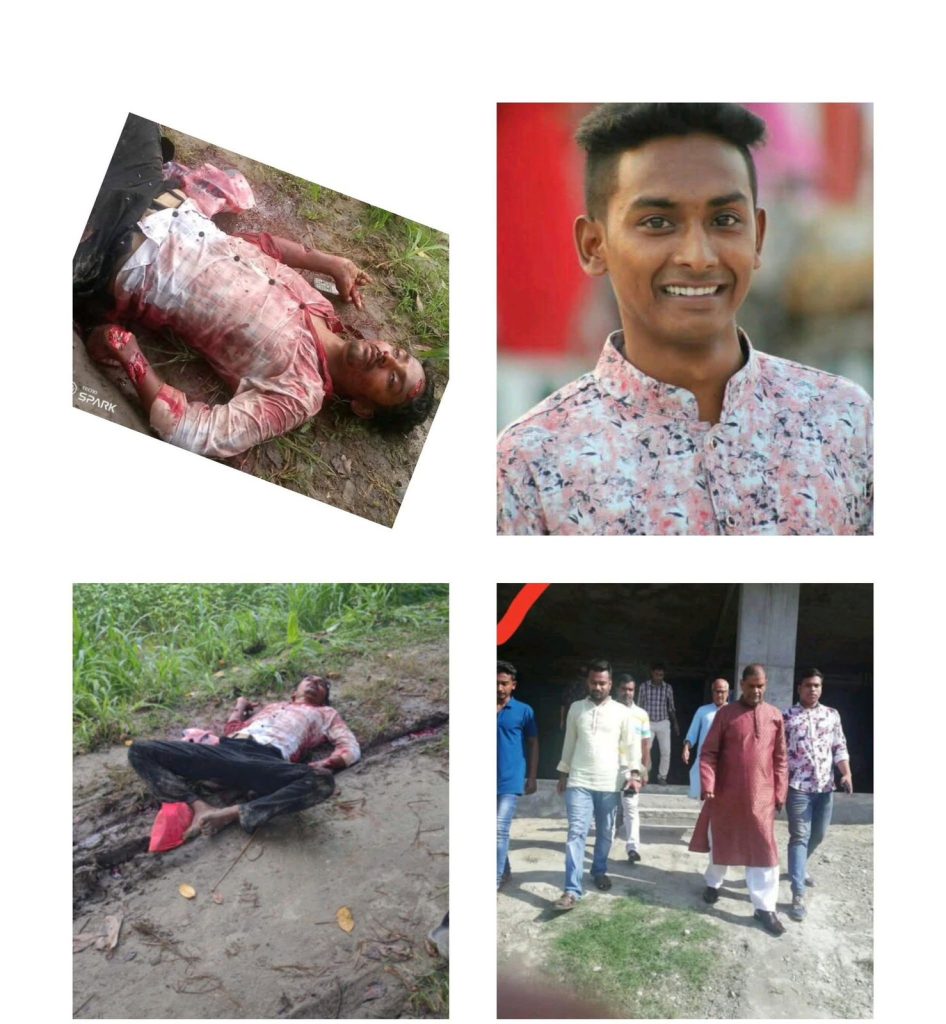
Educational institutions, law courts, media, business centres, residential buildings, historical structures, monuments of the language movement and the Great Liberation War, and social events are not being spared from the black claws of mob terrorism.
Everyone is critical of the mob violence, but the advisers of the unconstitutional interim government, led by Nobel Peace laureate Muhammad Yunus, recently defined “mob” as a “pressure group” and mob violence as mob justice, making them more reckless.
Since then, Yunus has been widely labelled as the Mob King of Bangladesh, with some suggesting that he has turned it into Banglastan by patronising the Islamists and establishing a mob-led society.